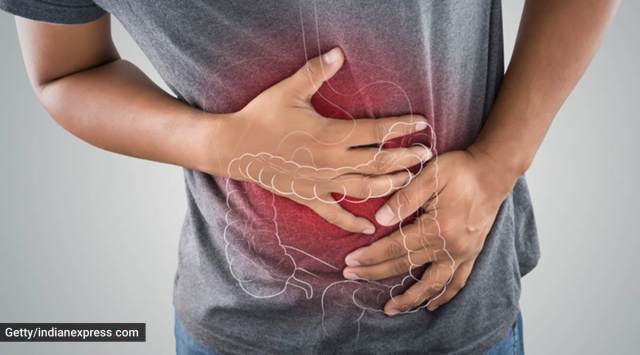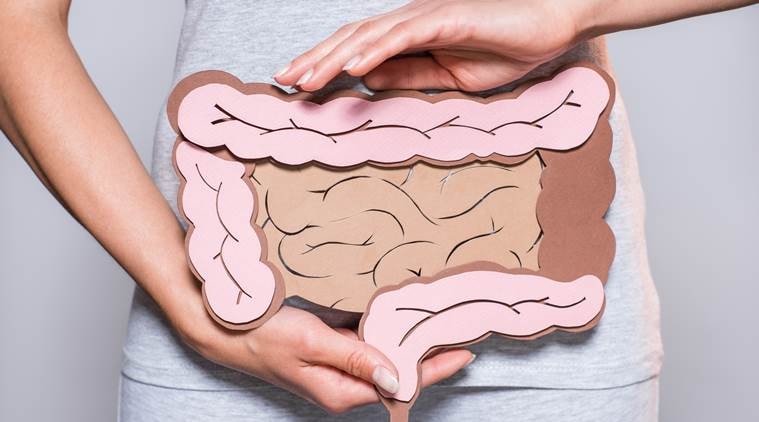- India
- International
Why you mustn’t ignore symptoms like bloating, constipation, heartburn
Being under 50, family history, anxiety, and depression can trigger this condition, said Dr Roy Patankar, gastroenterologist
 It is important to pay attention to IBS (Source: Getty Images/Thinkstock)
It is important to pay attention to IBS (Source: Getty Images/Thinkstock)Do you often feel bloated, and also have symptoms such as diarrohea, constipation, abdominal pain, or incomplete excretion? Then, you need to consult an expert on an immediate basis as these symptoms can be suggestive of irritable bowel syndrome (IBS), said Dr Roy Patankar, gastroenterologist and director, Zen Multispecialty Hospital, Chembur, Mumbai.
Buy Now | Our best subscription plan now has a special price
“This condition can take a toll on you, making it harder to carry out daily activities with ease. Seek timely medical attention; ignoring it is a strict no-no,” said Dr Patankar.
What is IBS?
IBS is a common disorder affecting the large intestine and is seen in a large number of people.
The types are:
– IBS with constipation (IBS-C): If you have this type of IBS, your motions will be hard and lumpy.

– IBS with diarrohea (IBS-D): Here, the motion is loose and watery.
– IBS with mixed bowel habits (IBS-M): There will be hard and lumpy bowel movements and loose and watery movements on the same day.
Causes
While the exact cause of this condition is unclear, various studies have confirmed that weak intestinal contractions can slow food passage and lead to hard, dry stools. Improper nerve functioning in digestive system causes discomfort when the stomach stretches from gas or stool. Poorly coordinated signals between the brain and the intestines lead to unwanted changes in the digestive process causing pain, diarrohea, or constipation. Stress, changes in the gut microbes, and sensitivity to certain foods like wheat, milk, citrus fruits, beans, cabbage, milk, and aerated drinks can lead to this condition.
 Diarrhea, constipation, excessive IBS, bloating, etc., are signs of gut health problems. (Source: Getty/Thinkstock)
Diarrhea, constipation, excessive IBS, bloating, etc., are signs of gut health problems. (Source: Getty/Thinkstock)
Risk factors
Being under 50, family history, anxiety, and depression can trigger this condition. “People with IBS will have a poor quality of life and will often be stressed,” the expert added.
Symptoms
If you have IBS, you will exhibit symptoms such as bloating, constipation, loss of blood in stools, alternate diarrhea, family history of gastro-intestinal cancers, harder or looser stools, fatigue, mucuos in poop, intolerance to various foods, heartburn, acidity, abdominal pain, and cramping.
Treatment
Along with taking medication, one will have to follow certain lifestyle modifications.
*Drink enough water and eat probiotics as they are good for the gut.
*Have sesame seeds, soybean, almonds, and spinach to get enough amount of calcium.
*Eat fresh fruits, vegetables, and whole grains loaded with fibre.
*Avoid caffeine, milk, and cheese as many people with IBS are lactose intolerant.
*Try to eat smaller meals, and record the triggers such as spicy, oily, processed, and junk foods.
*Quit smoking and alcohol, exercise daily, stay stress-free by doing yoga or meditation, and follow a proper sleep routine.
*Refrain from using over-the-counter medication.
📣 For more lifestyle news, follow us on Instagram | Twitter | Facebook and don’t miss out on the latest updates!
Apr 19: Latest News
- 01
- 02
- 03
- 04
- 05

























